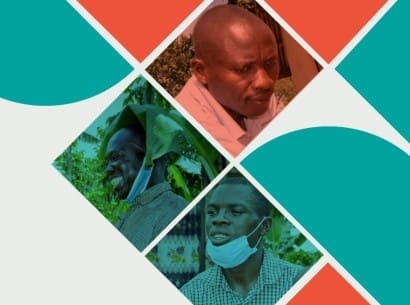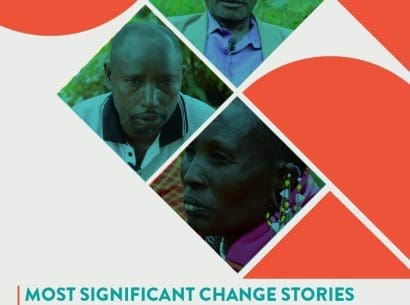
Securing Your Family’s Future (SYFF) Course for Men
2016 - 2021
Wellspring Philanthropic Foundation
Kenya ,Tanzania, United Republic of ,Uganda
Kenya Legal and Ethical Issues Network on HIV & AIDS (KELIN), the Pastoral Women’s Council in Tanzania, the Uganda Community Based Association for Women and Children’s Welfare (UCOBAC), and Lori Rolleri Consulting based in New York.
Carolyne Ajema
Securing Your Family’s Future (SYFF) course for men was an interactive, gender-transformative course aimed at changing behaviors and mediating social norms related to women’s land and property rights. This pilot course was designed to facilitate a shift in peer norms among men on women’s land and property rights, particularly men’s knowledge, attitudes, self-efficacy, future intentions, and perceptions.
What Did We Set Out to Do?
Wellspring Philanthropic Fund initiated this effort in 2016 to improve women’s land tenure in Kenya, Tanzania, and Uganda. The SYFF Course for Men was developed in partnership with the Kenya Legal and Ethical Issues Network on HIV & AIDS (KELIN), the Pastoral Women’s Council in Tanzania, the Uganda Community Based Association for Women and Children’s Welfare (UCOBAC), and Lori Rolleri Consulting based in New York. The course included a series of six two-hour sessions over three to six weeks using a variety of interactive teaching methods.
The SYFF course was evaluated at baseline and endline to ascertain men’s knowledge, attitudes, self-efficacy, future intentions, and perceptions of peer norms related to women’s land and property rights.
Methods Utilized
The assessment was exclusively qualitative. Study participants were men who participated in the course pilot and graduated from the course. All interviews and focus group discussions were translated to English and transcribed verbatim and analyzed thematically using NVivo 12. Multilevel ethical approval was obtained. In addition to the data collection conducted at baseline and endline, we trained the country program implementing teams on participatory evaluation approaches and routine monitoring and evaluation (M&E).
Conclusions and Key Publications
The SYFF course for men served as a wakeup call about women’s unequal treatment with respect to land ownership and rights and as a call to action; it helped to challenge men to rethink their attitude and practices. Overall, the course had a positive impact on men’s knowledge, attitude, self-efficacy, peer norms and future intentions. However, it remains to be seen whether positive change in knowledge will lead to a change in practice in many areas.
In addition, some men were left with outstanding questions after completing the course due to the absence of continuous engagement after the training and a graduation strategy.



